Deep learning based methods for real-time frequency domain photoacoustic theranostics
Faculty: Dr. Jaya Prakash (Instrumentation and Applied Physics) & Dr. Vaanathi Sundaresan (Computational and Data Science)
Image reconstruction is a classical inverse problem and is typically under-determined due to many experimental factors like limited-view data acquisition, physical effects based on optics (non-linear fluence) and acoustic (spatial and electrical impulse response of the detector), noise, etc. Photoacoustic elastography is an emerging technique used to obtain the elasticity distribution in the biological tissue, however photoacoustic elastography has been proposed in time-domain wherein pulsed lasers are used making the system bulky and expensive. Elastographic techniques could potentially enable cancer diagnosis. On the other hand, time-domain photoacoustic thermometry allows imaging temperature distribution in the medium, which has great potential during thermal therapies. Performing both elastography (diagnostics) and thermometry (therapy) is much needed to enable better treatment outcomes in a theranostic framework. More importantly developing these technologies to be real-time, low-cost and affordable is much needed in a clinical setting allow for wider accessibility of the technology.
Hence, this project aims to develop a deep learning model in the context of frequency domain photoacoustics to perform elastography and thermometry simultaneously, which could potentially make the system compact and cheap. Further development of light-weight deep learning methods will make the systems operate in real-time. The developed frequency-domain approach will be combined with model-based reconstruction and sparse recovery techniques as part of this Ph.D. thesis topic to provide state-of-the-art reconstruction algorithms. Lastly, validating these algorithms with real-experimental data will also be involved. Importantly, this thesis will also involve developing appropriate confidence bounds, explainable, and generalizable deep learning methods thereby helping easier deployment.
Background needed: Linear Algebra, signal processing, machine learning, programming.
Basic Qualifications: B.E./B.Tech. in EE/ECE/IN/CS/IT/BME (or) M.Sc. (Mathematics/Physics)
